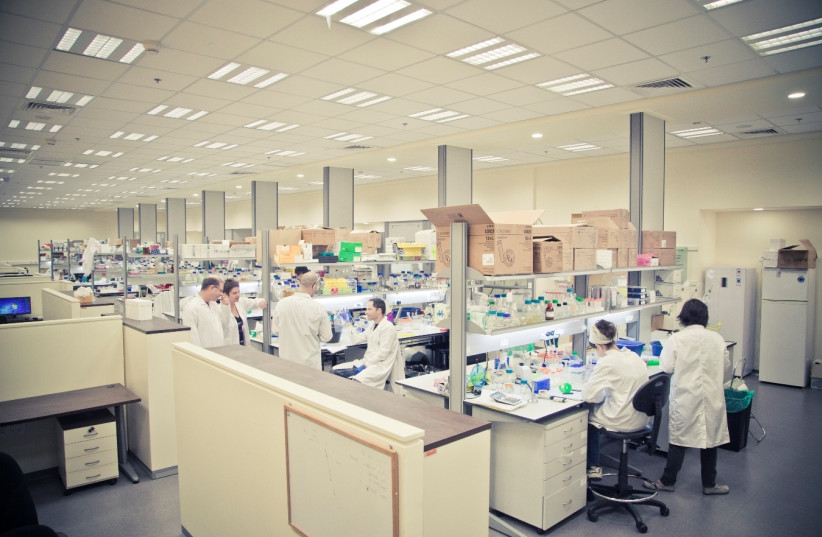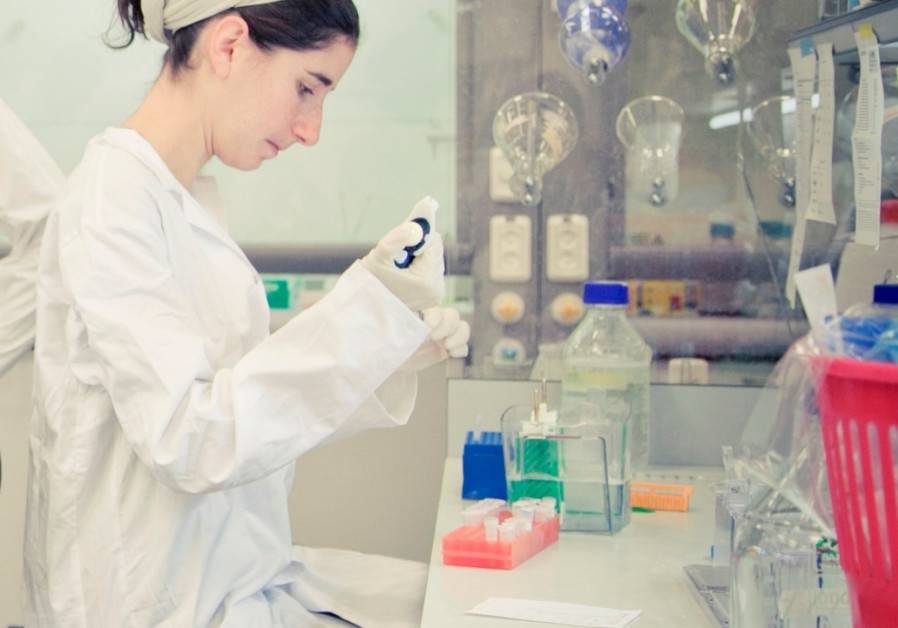Once the vaccine is developed, it will take at least 90 days to complete the regulatory process and potentially more to enter the marketplace.

Jerusalem PostHealth & Science
Israeli scientists are on the cusp of developing the first vaccine against the novel coronavirus, according to Science and Technology Minister Ofir Akunis. If all goes as planned, the vaccine could be ready within a few weeks and available in 90 days, according to a release. (Akunis made his statement at the end of February.)“Congratulations to MIGAL [The Galilee Research Institute] on this exciting breakthrough,” Akunis said. “I am confident there will be further rapid progress, enabling us to provide a needed response to the grave global COVID-19 threat,” Akunis said, referring to the disease caused by the novel coronavirus.
For the past four years, a team of MIGAL scientists has been developing a vaccine against infectious bronchitis virus (IBV), which causes a bronchial disease affecting poultry. The effectiveness of the vaccine has been proven in preclinical trials carried out at the Veterinary Institute.MIGAL is located in the Galilee.“Our basic concept was to develop the technology and not specifically a vaccine for this kind or that kind of virus,” said Dr. Chen Katz, MIGAL’s biotechnology group leader. “The scientific framework for the vaccine is based on a new protein expression vector, which forms and secretes a chimeric soluble protein that delivers the viral antigen into mucosal tissues by self-activated endocytosis, causing the body to form antibodies against the virus.”

MIGAL laboratory (Photo Credit: Lior Journo)Endocytosis is a cellular process in which substances are brought into a cell by surrounding the material with cell membrane, forming a vesicle containing the ingested material.
In preclinical trials, the team demonstrated that the oral vaccination induces high levels of specific anti-IBV antibodies, Katz said.
“Let’s call it pure luck,” he said. “We decided to choose coronavirus as a model for our system just as a proof of concept for our technology.”
But after scientists sequenced the DNA of the novel coronavirus causing the current worldwide outbreak, the MIGAL researchers examined it and found that the poultry coronavirus has high genetic similarity to the human one, and that it uses the same infection mechanism, which increases the likelihood of achieving an effective human vaccine in a very short period of time, Katz said.
“All we need to do is adjust the system to the new sequence,” he said. “We are in the middle of this process, and hopefully in a few weeks we will have the vaccine in our hands. Yes, in a few weeks, if it all works, we would have a vaccine to prevent coronavirus.”
MIGAL would be responsible for developing the new vaccine, but it would then have to go through a regulatory process, including clinical trials and large-scale production, Katz said.
Akunis said he has instructed his ministry’s director-general to fast-track all approval processes with the goal of bringing the human vaccine to market as quickly as possible.
“Given the urgent global need for a human coronavirus vaccine, we are doing everything we can to accelerate development,” MIGAL CEO David Zigdon said. The vaccine could “achieve safety approval in 90 days,” he said.
It will be an oral vaccine, making it particularly accessible to the general public, Zigdon said.
“We are currently in intensive discussions with potential partners that can help accelerate the in-human trials phase and expedite completion of final-product development and regulatory activities,” he said.
This article was originally written at the end of February and was updated on April 7.
